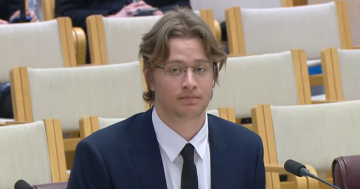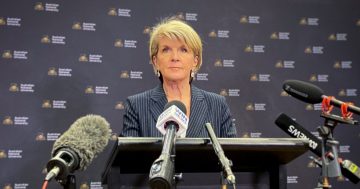
TEQSA CEO Dr Mary Russell could not give a timeline on when the regulator’s investigation into the ANU was expected to be complete. Photo: Supplied.
The Australian National University’s council and executive leadership’s culture, as well as its oversight of the institution’s financial position, could present risks to its compliance with Federal law.
The Tertiary Education Quality and Standards Agency (TEQSA) issued the ANU with a notice that it would be assessing its compliance with the Tertiary Education Quality and Standards Agency Act 2011 as it “continues to be concerned about potential risks to ANU’s compliance with its obligations” under the Higher Education Standards Framework (Threshold Standards) 2021.
“TESQA is concerned that ANU’s Council may not have fulfilled its obligation to exercise competent governance oversight of and be accountable for all ANU’s operations,” it stated.
“[The] scope is based on evidence available to TEQSA and on concerns brought to TEQSA’s attention and may change subject to any further issues that may arise.”
The regulator noted that the university had reached a point where it needed to reduce recurring expenditure through the Renew ANU program, as observed by the council.
“It is unclear if the ANU Council has identified and addressed potential risks that led to this financial position and whether these potential risks persist,” the compliance notice stated.
Dr Russell clarified in a letter to Professor Bell that TEQSA was not requiring the university to suspend Renew ANU during its investigation.
“This is because TEQSA has not made any findings that would prompt this action,” Dr Russell wrote.
“However, TEQSA will expect to be provided with key information about how ANU is meeting its industrial obligations and mitigating the risks to compliance that could potentially arise from this program of work.”
There are several standards under the HES Framework being examined, including whether ANU Council members and executive were “fit and proper persons”, whether governance functions and processes were being adhered to “diligently and effectively”, if freedom of speech and academic freedom were being “upheld and protected”, if the ANU’s financial position and performance were being “monitored regularly and understood”, if risks to higher education operations had been identified, managed and mitigated “effectively”, and whether the occurrence and nature of formal complaints were being monitored and action taken to address underlying causes.
It’s under these standards that TEQSA believed there’s “potential risk to compliance”.
The compliance assessment notice stated several issues had been identified, which made the regulator concerned about cultural issues within ANU’s council and executive leadership.
These included concerns that staff had been unable to voice concerns about decisions made by ANU’s leadership, with allegations about Chancellor Julie Bishop and other senior members aired during a recent Senate inquiry hearing.
Other concerns included the transparency of the Renew ANU program and whether further staff cuts were necessary, concerns of the council’s internal culture (including whether it knew about Vice Chancellor Genevieve Bell’s paid role with Intel), and findings from the Nixon Review about inflexible work practices, unfair workloads, bullying, discrimination, and lack of effective systems and accountability to address such issues.
Concerns about the ANU’s School of Cybernetics have also been brought to TEQSA’s attention.
The regulator has been investigating ANU compliance concerns since October 2024.
It required the ANU to supply a self-assurance report by 12 August, but this deadline was extended to 19 August.
Dr Russell explained at the Senate inquiry hearing that such a report wasn’t about the ANU assessing itself.
“We’re interested in understanding the history in how effectively [the ANU’s] governing body and its governance processes have monitored and responded to [issues] over time,” she said.
“A lot of what’s important in a self-assessment statement is what’s not said; it helps us to identify the gaps.”
Dr Russell said it would be up to the ANU whether to make its statement public.
An ANU spokesperson confirmed it would be sending its self-assurance letter to TEQSA on Tuesday, 19 August.
They did not address Region’s question about whether it would make this letter publicly available.
“We welcome the opportunity to work collaboratively with our regulator on addressing these matters. Any further questions should be directed to TEQSA,” they said.
These issues have also led some to ask, both on public forums and with this publication, whether the National Anti-Corruption Commission should be investigating the university.
A NACC spokesperson told Region it does not confirm or deny if it has received any formal complaints of corruption, nor if it was considering or had commenced an investigation, as “to do so may compromise operational activities or unfairly impact reputations”.
Original Article published by Claire Fenwicke on Region Canberra.








